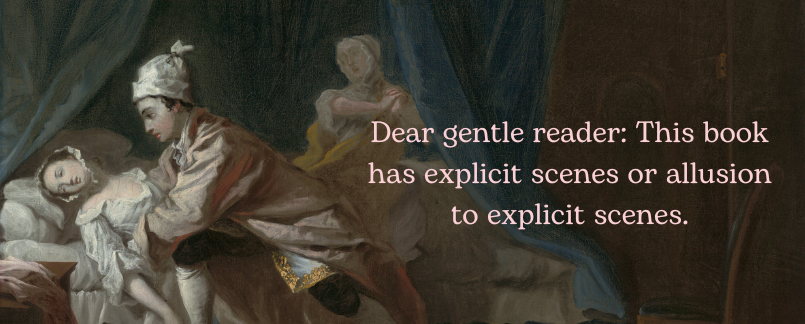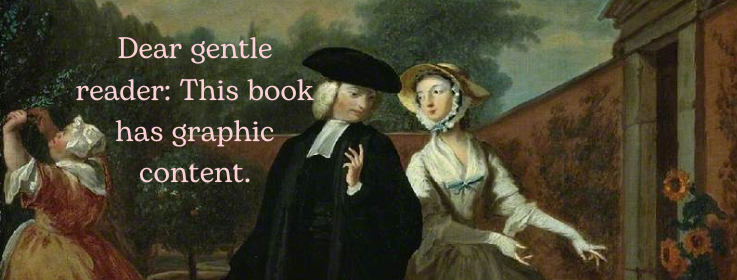

Title: Ithaca
Author: Claire North
Publisher: Redhook
Copyright: September 6, 2022
ISBN: 978-0356516066
ASIN: B09HQMF3M2
Format: Hardcover, 391 Pages
Genres: Historical Fiction, Women’s Fiction, Ancient History Fiction, Historical Fiction Inspired by Mythology, Historical Fiction with Elements of Mystery
Price: $16.99 [Amazon Paperback], $9.99 [Kindle], $31.94 [Audible], $18.99 [Barnes and Noble Paperback], $9.99 [Nook], $31.94 [Barnes and Noble Audiobook], $9.99 [Google Play], $23.95 [Google Play Audiobook], $9.99 [Apple Books], $22.99 [Apple Books Audiobook]
Summary
Seventeen years ago, King Odysseus sailed to war with Troy, taking with him every man of fighting age from the island of Ithaca. None of them has returned, and the women of Ithaca have been left behind to run the kingdom.
Penelope was barely into womanhood when she wed Odysseus. While he lived, her position was secure. But now, years on, speculation is mounting that her husband is dead, and suitors are beginning to knock at her door.
No one man is strong enough to claim Odysseus’ empty throne—not yet. But as everyone waits for the balance of power to tip, Penelope knows that any choice she makes could plunge Ithaca into bloody civil war.
This is the story of Penelope of Ithaca, famed wife of Odysseus, as it has never been told before. Beyond Ithaca’s shores, the whims of gods dictate the wars of men. But on the isle, it is the choices of the abandoned women—and their goddesses—that will change the course of the world.
Character Profile: Penelope, Queen of Ithaca

“Study for Penelope,” by Anicet Charles Gabriel Lemonnier, 1806. The Cleveland Museum of Art. I love this image. Penelope looks weary from the burden of carrying the world on her shoulders.
There is some debate as to what “Penelope” means. Hesychius of Alexandria suggests that she was named for a bird. Penelops refers to a “duck or water fowl,” which was held as sacred by the ancient Greeks. It is also thought that the name refers to weaving or a weaver: pene “web,” ops “eye,” and lepo “unraveled.” The first suggestion would suit her due to the fact that her mother purportedly was a naiad or water nymph. The second suggestion is appropriate because she has her shroud of Laertes or web that she weaves and then unpicks during the course of Homer’s The Odyssey.
The Odyssey introduces us to Penelope, Queen of Ithaca who waits for her beloved husband, Odysseus to return after being away since the outbreak of the Trojan War nearly twenty years ago. She was a Spartan princess, the daughter of King Icarius and Periboea, a naiad. In Geographica, Greek geographer, philosopher, and historian, Strabo tells us that Polycaste, daughter of Lygaeus was the mother of Penelope.
History and literature portrays her as a clever, wise, and virtuous woman who is true to her husband. She is entirely unlike her more dramatic cousins, Helen, Queen of Sparta and Clytemnestra, Queen of Mycenae. Helen, wife of King Menelaus and the most beautiful woman in the Aegean, started the Trojan War by either leaving voluntarily with Prince Paris of Troy or by being abducted by him. Clytemnestra, the unhappy wife of King Agamemnon, took a lover, Aegisthus, and then slayed her husband when he returned from the war with his cadre of slaves.
Penelope is the dutiful queen who ensures that Xenia or the sacred laws of hospitality are adhered to. She and anyone at the royal court are forbidden from harming guests. Even though she is courted by more suitors than she can count, she does not want to remarry. In general, she finds them loathsome (Odyssey 18.198). When hounded by the suitors, she announces that she will finally make a decision when she has finished the shroud of her father-in-law, Laertes (who is still very much alive). In the megaron, she slowly weaves the shroud and by night, she unpicks the stitches in such a way so that it is not noticeable. Her maid, Melantho, reveals the truth to the suitors after this continues on for about three years.
Penelope has long been one of my favorite characters in literature. I think part of her appeal is the fact that she stayed true to herself and followed her course despite all of the insanity she had to deal with. She had to maintain peace at the royal court of Ithaca by treating the suitors kindly and keeping them at bay. She had to keep her son safe when some of the suitors wanted to do him harm, especially as he was entering adulthood. She had to maintain her sanity while she longed for the husband she loved and so sorely missed. She keeps everything together.
Dramatis Personae
- Penelope: Queen of Ithaca, wife of Odysseus, and mother of Telemachus; while her husband is missing, she is unwilling to remarry.
- Hera: Narrator; Queen of Olympus, goddess of marriage and women
- Telemachus: The son of Penelope and Odysseus; prince of Ithaca
- Eos: A dedicated maid to Penelope, comber of hair
- Autonoe: A dedicated maid to Penelope, keeper of the kitchen
- Other Maids of Penelope: Melantho, Melitta, Phiobe, Leaneira, Euracleia
- Priene: A warrior woman from the east
- Anaitis: A priestess of Artemis
- Medon: A wise and kind old councilor of Ithaca
- Suitors of Penelope: Antinous, Eupheithes, Eurymachus, Polybus, Amphinomous, Andraemon, Minta, Kenamon, Nisas
- Athena: Goddess of wisdom and war; favors Odysseus
- Artemis: Goddess of the hunt



Review
Penelope, Queen of Ithaca is a young woman when her husband, Odysseus, leaves home to fight in the Trojan War. Now, nearly twenty years later, she is a woman of mature years who waits patiently for her husband to return. It has been years since the fall of Troy and, alas, she has heard nothing about what has become of her husband. On the island of Ithaca, Penelope is forced by the sacred laws of hospitality to tend to the needs of her guests who never seem to leave. These men are suitors who are vying for her hand in marriage. Thus goes their reasoning: ‘It has been many years since Odysseus left home, so it is unlikely that he is still alive. It is time to choose a husband to be King of Ithaca.’
She refuses to make such a choice that could result in her son, Telemachus’s death or exile. Moreover, what if Odysseus truly is alive somewhere? She resolves that she will remain true to the man that she loves. When Illyrian pirates attack the small smuggler town of Phenera, it’s a veritable massacre. Whoever has not been abducted lies dead upon the ground. Penelope must act quickly before the pirates return during the next full moon. How can she protect the island and keep the peace amongst the suitors? Only time will tell.
Claire North’s Ithaca is a tale about the lives of the women who live in Odysseus’s storied land. So often in The Iliad and The Odyssey, women were in the background. In this book, women are front and center, and that is part of what I love best about it. The story is told in first person omniscient, through the lens of Hera, queen of the gods, and goddess of women and marriage.
This is such a unique and fun way of telling an often-told tale such as The Odyssey. Hera strikes just the right balance between sarcastic humor and the seriousness of a violent conflict-ridden world. Establishing Hera as the omniscient narrator makes for quite a creative and engrossing narrative. Another thing worth mentioning is the gorgeous poetic nature of the writing. It was lyrical and bewitching at certain points of the story.
The plot was ingenious and ironclad. It was fairly consistent throughout. The pacing also was excellent. At no point did it seem like the plot or pacing was slowing down. There was a thrilling element of mystery woven throughout the story as well. That is what hooked me from early on in the book.
For the most part, all of the characters were beautifully written. We have the long-suffering Penelope and her dedicated army of maids who all have to put up with many indignities from the self-important suitors. There are the suitors who cause all sorts of chaos and do nothing but eat and get drunk. They all impatiently wait for her to make a choice. In all, the characters had an authentic “feel,” as if they were the characters rendered in Homer’s The Odyssey.
I had too many favorite characters to count. Some of my favorite characters were: Penelope, all of her maids, Hera, and the other women of Ithaca. Penelope is the proper queen who does what she can to keep the peace on her chaos-filled island. She needs to keep her cool in the face of rude and condescending men. She is so strong and admirable.
At the beginning there is a useful section “Dramatis Personae” that explains who is who. This is a great way to keep track of the extensive cast of characters featured in the story. What I would have liked to see was an Author’s Note. It is apparent that the author must have done considerable research. An Author’s Note would have been great to explain the author’s decisions and the research they conducted.
There were two things I didn’t like. As I was reading through the book, there were numerous grammatical errors. This was distracting and it took me out of the book. Another thing I noticed was modern wording. This, too, was distracting and took away from the story. This second thing, admittedly, is specific to my own tastes. Modern wording could be palatable to the average modern reader.
All things considered, this book was absolutely delightful. I thoroughly enjoyed it and I look forward to reading Claire North’s sequel, The House of Odysseus, in the future.
Rating

Memorable Quote
Three daughters of Sparta became three queens in Greece, and I love them, power in their voices and fire in their eyes, even Penelope, even the one who smiles and says she does it for her husband, I love her, I love her. But no one ever said the gods did not have favourites, and it is Clytemnestra I love best, my queen above all, the one who would be free.
– Claire North, Ithaca
If you like this, you may enjoy…

In 1997, there was a miniseries that came out called The Odyssey. It features famous actors such as Armand Assante, Greta Scacchi, Irene Papas, Bernadette Peters, and Vanessa Williams. It does a good job depicting the struggles and life of Penelope alongside the usual story of The Odyssey.
Sources
de Jong, Irene. A Narratological Commentary on the Odyssey. Cambridge University Press, 2001.
St. Clair, Kassia. The Golden Thread: How Fabric Changed History. London, UK: John Murray, 2018, pp. 11-12.

